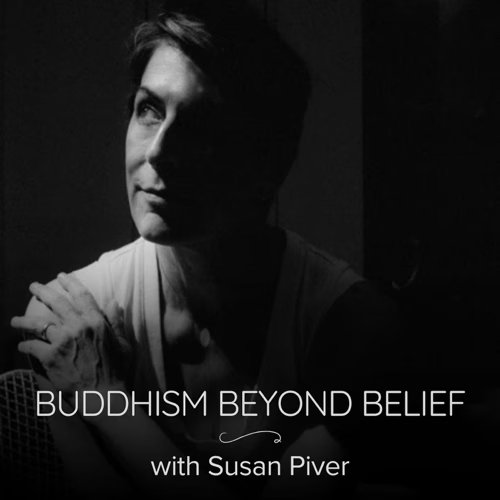
Buddhism Beyond Belief with Susan Piver
The Four Noble Truths and the Middle Way: Foundations of the Journey
The Buddha’s Early Life & Awakening
Siddhartha was a protected prince, shielded from suffering by his father.
He encountered old age, sickness, and death for the first time during a trip outside the palace.
This led him to renounce his privileged life and seek liberation from suffering.
He meditated under the Bodhi tree, seeking truth beyond suffering.
Achieved enlightenment, saw through the nature of suffering, and articulated the Four Noble Truths.
The Four Noble Truths (Overview):
- Life is suffering (Dukkha) – More accurately, life is unsatisfying because everything is impermanent.
- Cause of suffering – Grasping, clinging, and pretending we can make things unchanging.
- Cessation of suffering – Let go of grasping, and suffering will cease.
- Path to cessation – The Noble Eightfold Path (e.g., right view, right speech, right livelihood, etc.).
Three Types of Suffering:
- Suffering of suffering – Painful experiences like illness and death; inevitable.
- Suffering of change – Joy and success are temporary; fear of loss brings suffering.
- All-pervasive suffering – A background unease or existential dissatisfaction, even when life is “good.”
The Middle Way:
Buddhism embraces neither eternalism (belief in eternal divine reward/punishment) nor nihilism (belief in nothing beyond material existence).
The Middle Way is not the mid-point between the two. What is it?
Direct Experience Over Belief:
Don’t take the Buddha’s word for it — verify teachings through your own lived experience.
Belief systems, even Buddhist ones, are seen as potential obstacles.
Wisdom comes from mixing teachings with direct experience, not from intellectualization.
Final Reflection:
The true spiritual path is one’s own journey of discovery.
All teachings are tools; the real teacher is your own mind, inseparable from wisdom itself.
For more on Buddhist teachings and how our humanity isn’t necessarily in our way, sign up for my free weekly newsletter or join the Open Heart Project sangha for more connection with community and with me.
If this podcast has been meaningful to you, it would be great if you would subscribe, give it a five star rating and share it with a friend. To join or learn more about The Open Heart Project please visit openheartproject.com.
Thoughts? Email us at info@susanpiver.com
Produced by Citizens of Sound
Music by: Derek O'Brien
©Open Heart Project